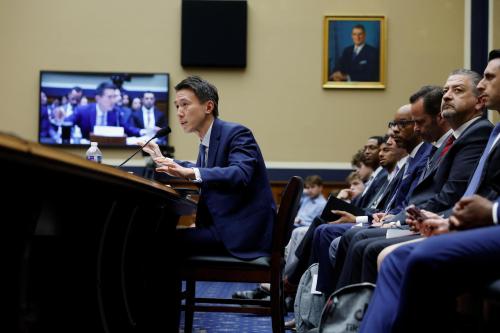Thank you, Mr. Chairman, for inviting me to appear today to discuss accounting and disclosure issues in the wake of the Enron failure.
I come to you with a somewhat different background than many of those who have appeared before you so far––not as a professional accountant or securities regulator, but as an individual who has spent most of his career in a policy research setting and in government working on a variety of issues, some of which have touched on Enron-related questions. In particular, much of my research has focused on the financial services industry, while in my years in government, I have helped enforce the nation’s antitrust laws and have overseen or worked with the budgets with a number of federal agencies, including the SEC. Of perhaps greater relevance to the current hearing, I have coauthored a book with my colleague from AEI here today, Peter Wallison, on what we believe to be some of the cutting edge issues in accounting and disclosure, and am in the process of co-authoring another book on disclosure policy in a world of increasingly global capital markets. I hope that through these various experiences and endeavors I can provide the Committee with some fresh insight into the challenges it and the entire Congress now confront.
Overview
The Enron failure poses some of the toughest policy challenges of any financial collapse in recent memory. The current situation is not comparable to the savings and loan or the banking disasters of the 1980s, which were nearly a decade in the making before Congress finally took action. By comparison, the disclosure problems that have surfaced in Enron have been apparent only over the past several years, especially the growing number of earnings restatements and the rising concern about “earnings management” expressed by the SEC and others. More importantly, whereas in the S&L and banking cases there were clear “solutions” on the “policy shelf”, as it were, for Congress to implement (notably, the system of prompt corrective action for enforcing capital standards), only some ideas are on the shelf this time and there appears to be only a limited consensus on which ones ought to be adopted.


Commentary
TestimonyAccounting and Disclosure After Enron
March 15, 2002